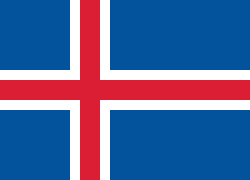Summary by Summer sport
Iceland first participated in the Summer Olympic games in 1908 and 1912. After that they returned in 1936 and have participated in every Summer Olympic Games since then.
They have won a total of four medals; 2 silver and 2 bronze. Vilhjálmur Einarsson won silver in men's triple jump in 1956, Bjarni Friðriksson won bronze in men's 95 kg Judo in 1984, Vala Flosadóttir won bronze in women's pole vault in 2000 and the Iceland men's national handball team won silver in men's handball competition in 2008.
Iceland has yet to participate in the disciplines Rhythmic gymnastics and Trampoline.
Handball was included in the Olympic programme in 1936. It returned in 1972 and has remained in the Olympic programme ever since. Iceland first participated in 1972 and has participated in the sport many times since then.
Iceland men's national handball team managed to win silver in the men's tournament in 2008.
Judo has been included in the Olympic programme since 1964 with the exception of the 1968 Games. Iceland first participated in 1976 and has participated most times since then.
Bjarni Friðriksson won bronze in men's 95 kg in 1984.
Shooting was included in the inaugural 1896 Summer Olympic programme and has been included in all Summer Games since then except for 1904 and 1928. Iceland has participated four times, first in 1992.
Ásgeir Sigurgeirsson accomplished their best placement in the sport so far when he finished 14th in men's 10m air pistol in 2012.
Marathon swimming has been included in the Olympic programme since 2008.
Iceland has yet to participate in the discipline.
Water polo has been included in the Olympic programme since 1900 with the exception of the 1904 Games. Iceland has participated once, in 1936 when they finished 15th.
| Games | Players | Events | Gold | Silver | Bronze | Total | Ranking |
|---|
| 1936 Berlin | 8 | 1/1 | 0 | 0 | 0 | 0 | |
| Total | | | 0 | 0 | 0 | 0 | – |
|---|
Weightlifting was first included in the Olympic programme at the inaugural 1896 Summer Olympics. It was excluded from the 1900, 1908 and 1912 Games but have been included every other time. Iceland has participated in the sport four times, from 1968 to 1980.
Their best placement was 8th by Guðmundur Sigurðsson in men's 90 kg in 1976.
Wrestling was included in the inaugural 1896 Summer Olympic programme and has been included in all Summer Games since then except for 1904. Iceland has participated in the sport twice, in 1908 and 1912.
Their best placement in the sport was 4th by Jóhannes Jósefsson in men's Greco-Roman middleweight in 1908.
This page is based on this
Wikipedia article Text is available under the
CC BY-SA 4.0 license; additional terms may apply.
Images, videos and audio are available under their respective licenses.
